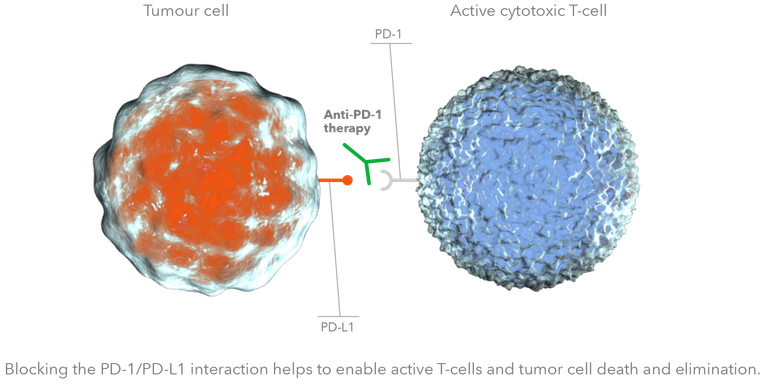The new genome editing technique CRISPR-Cas9 will be used in human patients for the first time. A Chinese group of scientist have permission to enroll patients with non-small cell lung cancer for whom other treatments have failed. CRISPR-Cas9 will be used to knock out a receptor protein in the immune cells that prevents them from being killed by the cancer cells.

CRISPR/Cas9
For those who are not familiar with the technique. CRISPR/Cas9 has made a huge impact in the field of DNA engineering. The technique is making it possible to introduce very precise cuts in the DNA of a living organism. At the location of the cut, researchers have been able successfully introduced new DNA code. But in most cases they left the cut to be repaired by a cell repair mechanisms, which led to "broken DNA code" which no longer leads to an effective protein. Disabling a protein can have many uses in biotechnology. The ease of use makes this technique very effective and used throughout all fields of biotechnology, now including healthcare.
PD-1 and Lung Cancer
So PD-1 is a receptor protein expressed on the membrane of certain immune cells (T cells). If the receptor is triggered by it's ligand (PD-L1), the T cell dies (apoptosis). You can effectively call it a death switch. This death-switch is there to prevent autoimmune reactions. Cells from your body express PD-L1 to prevent being attacked. The problem with cancers however is, that they are highly expressing this PD-L1 ligand, and are so immune to the attacks from T-cells. Pharmaceutical companies have tried to make molecules that block the receptor or the ligand, to prevent interaction, but the success rate highly varies between patients.

The First CRISPR/Cas9 Trial
To fight the cancer, the interaction between the PD-1 receptor and PD-L1 ligand must be prevented. Researchers have come up with the idea to extract T-cells from the patients body, and use CRISPR/Cas9 to "break" the DNA coding for the PD-1 protein. After this step, the T-cells will be reintroduced in the body, and hopefully attack the tumor without going into self-destruction mode. According to the journal Nature, the first patients will be treated as early as next month.
Risks
It is proven that CRISPR/Cas9 has to cope with off-target effects.. But since these are fully differentiated T-cells I do not expect that other DNA changes will pose a huge risk. But you never know.
Some other thing I was wondering about myself was whether there is an risk for autoimmune disease. I have not read the details of this study, but maybe someone at Steem has an idea?
Curing cancer is a clear case for the better of human kind. But as you can imagine CRISPR/Cas9 can be used for a lot more... What are your thoughts on genome engineering?

Some Links:
http://www.nature.com/news/chinese-scientists-to-pioneer-first-human-crispr-trial-1.20302
https://www.statnews.com/2016/07/21/crispr-experiment-humans/?s_campaign=stat:rss
https://www.statnews.com/2016/07/18/crispr-off-target-effects/?trendmd-shared=0
Congratulations @mjpdejong! You have received a personal award!
Click on the badge to view your own Board of Honor on SteemitBoard.
For more information about this award, click here
Congratulations @mjpdejong! You have received a personal award!
Click on the badge to view your Board of Honor.
Do not miss the last post from @steemitboard:
SteemitBoard World Cup Contest - Play-off for third result
Participate in the SteemitBoard World Cup Contest!
Collect World Cup badges and win free SBD
Support the Gold Sponsors of the contest: @good-karma and @lukestokes
Congratulations @mjpdejong! You received a personal award!
You can view your badges on your Steem Board and compare to others on the Steem Ranking
Vote for @Steemitboard as a witness to get one more award and increased upvotes!